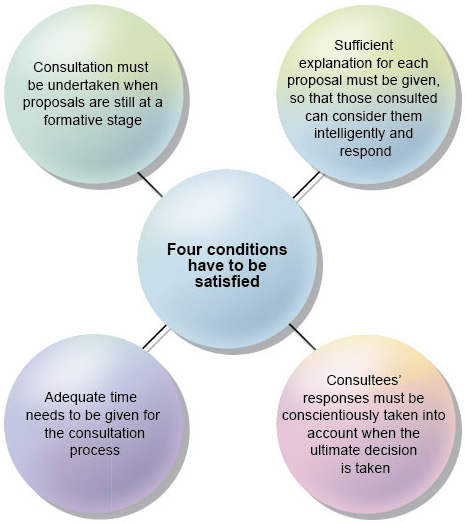6.1 Consultation
Legislation can also impose specific procedural conditions or requirements which must be satisfied before a power can be exercised. For example, legislation might stipulate that the Scottish ministers or another public authority must:
- consult with particular persons
- publish a decision in draft
- make due inquiry
- consider any objections before making a decision.
These procedural requirements are important, and failure to comply with them may make a decision invalid. The decision-maker will need to fulfil them (and be able to show that they have been fulfilled) in spirit, as well as literally.
Consultation helps to make the process a transparent and fair one and helps to ensure that the decision-maker is in possession of all the relevant information, so that the decision is a ‘rational’ one as well. Where consultation is undertaken, it has to be conducted properly if it is to satisfy the requirement for procedural fairness. Four conditions have to be satisfied, as illustrated in the figure below.

